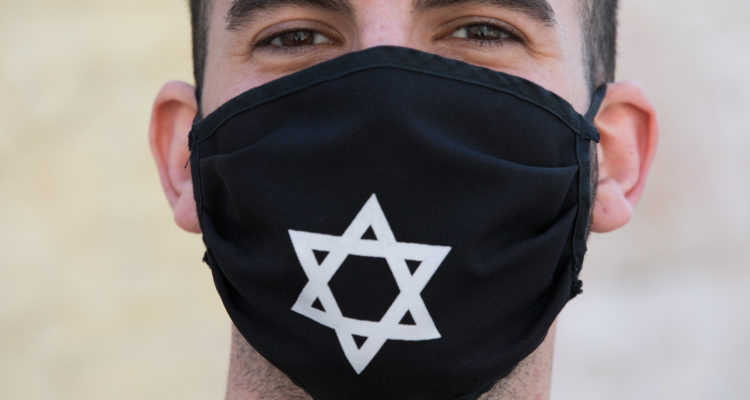Conducted by the Ruderman Family Foundation, the poll surveyed more than 1,000 Israelis on the current state of anti-Semitism.
Some 28% of Israeli Jews aged 18-29 are either “very much” or “extremely” afraid for their personal safety as a Jew traveling abroad, and 59% of Israelis hide their Jewish identity while out of the country, according to a new survey released on Monday by the Ruderman Family Foundation.
Commissioned by the Foundation and conducted by Dialog, the poll surveyed more than 1,000 Israelis on the current state of anti-Semitism.
The results were released at the Knesset during a special session of the Caucus for Israel-American Jewry Relations, an initiative established by the Foundation. The Caucus’ objective is to strengthen Israeli relations with American Jewry and elevate the concerns of American Jews within Israeli deliberations and aspirations.
In the survey, 21% of Israeli Jews ages 18-29 reported either experiencing antisemitism or knowing of someone who experienced anti-Semitism when traveling outside of Israel. 17% of respondents aged 30-39, 7% ages 40-49, 15% ages 50-59, and 8% over 60 answered “yes” to the same question.
Similarly, 32% of Jews ages 18-29 are reluctant to reveal that they are Israeli when traveling abroad, compared to 35% of respondents aged 30-39, 27% ages 40-49, 23% ages 50-59, and 15% over 60.
When asked if they hide Jewish symbols on their person when traveling, 59% of Israelis said they would do so, with traditional Jews (69%) opting to do so the most and Orthodox Jews (31%) the least likely to avoid wearing religious garb while traveling.
Nearly two-thirds, 62%, agreed that Israel should intervene in the combat against anti-Semitism around the world, employing tactics such as rescue missions, anti-Semitism training seminars, and disbursing aid to Jewish communities. 38% think Israel is not adequately addressing the impact of anti-Semitism online. Only 5% of Israelis believe the world is strongly working to combat anti-Semitism.
When it comes to their IDF service, more than half of Israelis say they are not afraid to fly abroad once they are discharged.
Twenty-six percent of Israeli Jewish adults aged 30-39 reported fear over personal safety at the prospect of traveling abroad, compared to 21% of respondents aged 40-49, 23% of those ages 50-59, and 16% for those over 60.
“Our new survey powerfully shows that pressing American Jewish concerns such as rising anti-Semitism are in fact shared concerns for the Jewish communities on both sides of the Atlantic and around the world,” Jay Ruderman said.
“Although Israelis live in a Jewish state, we should not and cannot assume that they are somehow immune from the threat of antisemitism. In turn, the shared nature of this threat can serve to unite American and Israeli Jews in efforts to combat it,” he added.
“Relations between Israel and American Jewry are a strategic asset for Israel and are not to be taken for granted,” said Caucus Co-Chair MK Ruth Wasserman Lande. “There is an importance in strengthening the acquaintance between Israelis and our brothers and sisters in the United States, with all the complexity that characterizes them.”
“The resilience of the Jewish people is in its unity,” Wasserman Lande added.
During Monday’s session, Knesset members were also presented with data from a previous Foundation-commissioned study conducted by the Mellman Group; a panel study that examined 2,500 Jewish American adults in December 2019 and the Fall of 2021. One thousand of the original respondents took part in the latter survey.
In data that has not yet been published, the U.S.-based study revealed that American Jews have a stronger sense of shared fate with each other than they do with Jews in Israel.
When asked how much what happens to Jews in America would affect their lives, 82% responded either “a lot” or “some.”
In contrast, only 55% feel any attachment to Israel. On the other hand, 73% of Israelis identify strongly when something happens to their Jewish brethren abroad.
